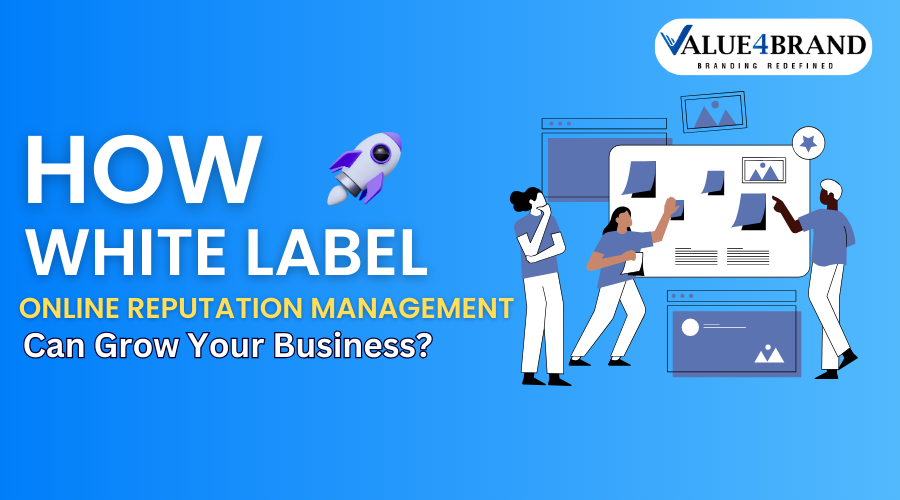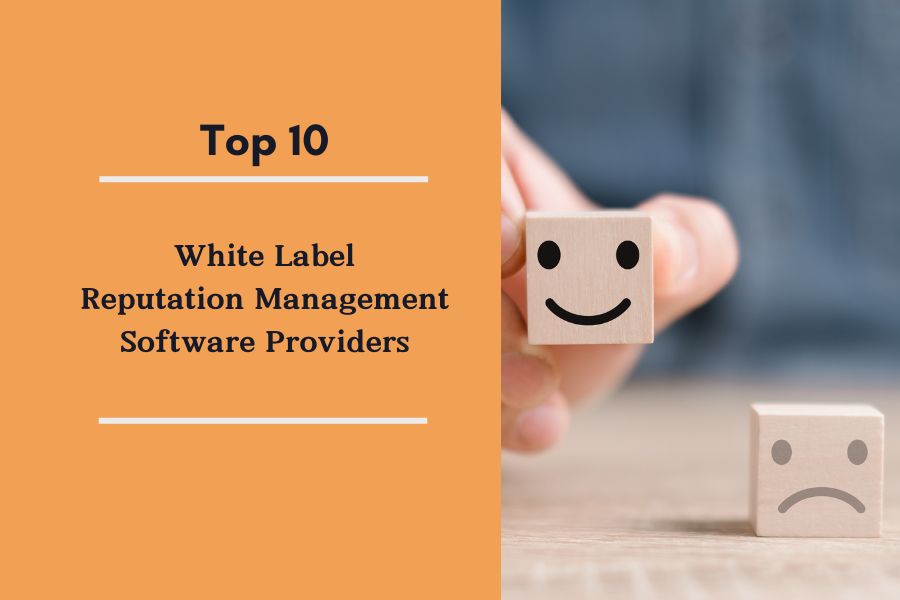In today’s hyper-connected digital landscape, a brand’s online reputation is its most valuable asset. From customer reviews and social media mentions to local business listings and news articles, every digital footprint contributes to public perception. For businesses of all sizes, managing this complex web of online information is no longer optional – it’s a critical imperative for survival and growth.
This escalating need has given rise to the reputation management industry, a specialized field focused on monitoring, improving, and protecting a brand’s digital image. At the forefront of this evolution are software solutions designed to automate and streamline these intricate processes. However, for marketing agencies, SEO firms, PR companies, and digital consultants, a unique and powerful opportunity exists: White Label Reputation Management Software.
This comprehensive article will delve into the world of white label reputation management software, exploring its definition, the unparalleled advantages it offers to agencies, essential features to look for, and how it can fundamentally transform an agency’s service offerings, client relationships, and revenue streams.
The Unseen Power of Online Reputation
Before we explore the "how," let’s reiterate the "why." Online reputation is no longer a niche concern; it’s a fundamental driver of business success. Consider these statistics:
- 93% of consumers read online reviews before making a purchase. (BrightLocal)
- 72% of customers say positive reviews make them trust a local business more. (BrightLocal)
- A single negative review can cost a business 30 customers. (Harvard Business Review)
- Brands that engage with customer reviews see an average increase of 18% in revenue. (Revoo)
These figures underscore a stark reality: an unmanaged online presence is a business vulnerability. Negative reviews can cripple sales, poor local SEO can lead to invisibility, and a lack of social media engagement can alienate potential customers. Businesses need to manage their reputation, and increasingly, they are turning to expert agencies for help.
What is Reputation Management Software?
At its core, reputation management software is a suite of tools designed to help businesses monitor, analyze, and influence their online presence. Key functionalities often include:
- Review Monitoring: Tracking reviews across various platforms (Google, Yelp, Facebook, industry-specific sites).
- Review Generation: Soliciting new reviews from satisfied customers.
- Social Media Listening: Monitoring mentions and sentiment across social channels.
- Listing Management: Ensuring consistent and accurate business information across directories.
- Sentiment Analysis: Understanding the emotional tone of online mentions.
- Competitive Analysis: Benchmarking against competitors’ online reputation.
- Reporting: Providing insights and actionable data on reputation performance.
While many businesses could theoretically use these tools directly, the complexity, time commitment, and strategic nuance involved often lead them to seek professional guidance from agencies.
Unpacking White Label Reputation Management Software
Here’s where the game changes for agencies. White Label Reputation Management Software refers to a solution developed by one company, but sold and rebranded by another. For an agency, this means they can license a sophisticated reputation management platform, customize it with their own branding (logo, colors, domain), and then offer it as their own proprietary service to their clients.
Imagine an agency named "Digital Growth Partners." Instead of telling clients they use "Brand X Reputation Manager," they can confidently present "Digital Growth Partners Reputation Suite." The client interacts solely with Digital Growth Partners’ brand, unaware that the underlying technology is powered by a third-party provider.
The Irresistible Advantages for Agencies
The "white label" model offers a compelling array of benefits that can fundamentally reshape an agency’s business model and growth trajectory:
-
Brand Building and Enhanced Credibility:
- Proprietary Offering: Agencies can present a unique, branded service that appears to be developed in-house. This elevates their perceived expertise and sophistication.
- Trust and Professionalism: Clients see a dedicated platform under their agency’s name, fostering greater trust and reinforcing the agency as a comprehensive solution provider, not just a reseller.
- Competitive Differentiation: In a crowded market, having a branded reputation management platform sets an agency apart from competitors who might offer generic solutions or simply outsource the task.
-
New Revenue Streams and Profitability:
- Service Expansion: Agencies can immediately add a high-demand service to their portfolio without the massive investment in R&D, development, and maintenance.
- Recurring Revenue: Reputation management is an ongoing need, leading to predictable monthly or annual recurring revenue (MRR/ARR) from subscriptions to the platform and ongoing service packages.
- Value-Added Upsells: The platform can be bundled with other services like SEO, social media marketing, or content creation, increasing the average client value.
- Higher Margins: Agencies can set their own pricing, often achieving significant profit margins over the wholesale cost of the white label software.
-
Client Retention and Stickiness:
- Integrated Solutions: By offering a comprehensive, branded platform, agencies create a deeper integration with their clients’ operations. Clients become more reliant on the agency for this critical function.
- Centralized Reporting: Clients access all their reputation data and insights within the agency’s branded dashboard, making the agency an indispensable hub for their online presence.
- Reduced Churn: When clients perceive the agency as a comprehensive partner providing unique, proprietary tools, they are less likely to switch providers.
-
Cost-Effectiveness and Scalability:
- No R&D Costs: Agencies avoid the monumental expense and time commitment of developing and maintaining their own software from scratch.
- Leverage Expertise: They instantly gain access to a robust, professionally developed, and regularly updated platform, benefiting from the provider’s ongoing innovation and security measures.
- Scalable Infrastructure: White label providers typically handle the technical infrastructure, hosting, and updates, allowing agencies to scale their reputation management services without worrying about IT overhead. Agencies can add new clients seamlessly.
-
Focus on Core Competencies:
- By offloading the software development and maintenance, agencies can dedicate their resources and expertise to what they do best: client strategy, creative campaigns, relationship management, and delivering exceptional results.
Essential Features to Look For in White Label Reputation Management Software
To truly empower an agency, a white label reputation management platform must offer a robust set of features, alongside the critical white label capabilities. When evaluating providers, agencies should prioritize:
-
Comprehensive Review Monitoring & Management:
- Broad Platform Coverage: Monitor reviews across major sites (Google Business Profile, Yelp, Facebook) and industry-specific platforms (TripAdvisor, Healthgrades, Zocdoc, etc.).
- Real-time Alerts: Instant notifications for new reviews (positive or negative) to enable swift responses.
- Centralized Inbox: A single dashboard to view, sort, and respond to all reviews.
- Templated Responses: Pre-approved response templates for efficiency and consistency.
-
Effective Review Generation Tools:
- Automated Campaigns: Ability to send review requests via SMS or email after a positive customer interaction.
- Customizable Landing Pages: Branded pages where customers can easily leave reviews on preferred platforms.
- Review Gating/Filtering (Ethical Approach): Directing happy customers to public review sites while privately addressing concerns from unhappy ones.
- NPS (Net Promoter Score) Surveys: Integrate surveys to gauge customer satisfaction and identify promoters.
-
Social Media Monitoring & Listening:
- Keyword Tracking: Monitor mentions of the client’s brand, products, services, and competitors across social platforms.
- Sentiment Analysis: Automatically categorize mentions as positive, negative, or neutral.
- Engagement Tracking: Monitor comments, shares, and likes related to the client’s brand.
-
Local SEO & Listing Management:
- Google Business Profile Integration: Manage and optimize client GBP listings directly from the platform.
- Citation Building & Consistency: Ensure accurate and consistent business information across numerous online directories.
- Duplicate Listing Detection: Identify and resolve duplicate listings that can harm local SEO.
-
Robust Reporting & Analytics:
- Branded Reports: Generate professional, client-ready reports with the agency’s logo and branding.
- Customizable Dashboards: Allow clients to log in and view key metrics relevant to their business.
- Performance Tracking: Show progress over time, including review count, average star rating, response rates, and sentiment trends.
- Competitor Benchmarking: Provide insights into how clients stack up against their rivals.
-
User-Friendly Interface & Customization:
- Intuitive Dashboard: Easy for both agency staff and clients to navigate.
- Full White Labeling: Complete customization of logo, colors, URL, and branding elements.
- User Roles & Permissions: Assign different access levels for agency team members and clients.
-
Automation & Workflow Management:
- Automated Alerts: For new reviews, low ratings, or critical mentions.
- Task Assignment: Assign specific review responses or reputation tasks to team members.
-
Training & Support:
- Comprehensive Documentation: Guides, tutorials, and FAQs.
- Responsive Customer Support: Timely assistance for technical issues or questions.
- Onboarding Assistance: Help getting the agency and its clients set up.
Implementing White Label Reputation Management: Best Practices for Agencies
To maximize the benefits of white label reputation management software, agencies should consider these best practices:
- Choose the Right Provider: Don’t rush this decision. Evaluate providers based on features, scalability, pricing model, customer support, and their commitment to ongoing development.
- Integrate Seamlessly: Ensure the platform integrates well with your existing services and workflows. It should enhance, not complicate, your operations.
- Develop a Clear Pricing Strategy: Decide how you will package and price your new reputation management service. Will it be a standalone offering, an add-on, or part of a larger bundle? Consider tiered pricing based on client needs.
- Market Your New Offering: Don’t just offer it – actively market your "proprietary" reputation management suite. Highlight the benefits to potential and existing clients.
- Train Your Team: Ensure your sales, account management, and service delivery teams are fully proficient with the platform and can articulate its value to clients.
- Educate Your Clients: Guide clients on how to use their branded dashboard and interpret the reports. Empower them to see the value firsthand.
- Focus on Results: Ultimately, the software is a tool. Agencies must leverage it to deliver tangible improvements in client reputation, leading to increased trust, better visibility, and business growth.
Conclusion: A Strategic Imperative for Modern Agencies
The digital age has irrevocably changed how businesses interact with their customers and how their reputations are forged. For marketing and digital agencies, this presents both a challenge and an immense opportunity. White label reputation management software is not just another tool; it’s a strategic asset that empowers agencies to:
- Elevate their brand and expertise.
- Unlock significant new revenue streams.
- Deepen client relationships and reduce churn.
- Scale their services efficiently and cost-effectively.
- Focus on delivering exceptional client results.
By adopting a robust white label solution, agencies can transform themselves from service providers into indispensable partners, offering a branded, comprehensive, and high-value solution that addresses one of the most critical needs of modern businesses: a stellar online reputation. The time for agencies to embrace this powerful model is now, solidifying their position as leaders in the ever-evolving digital landscape.

